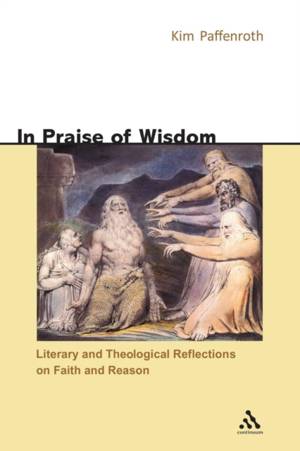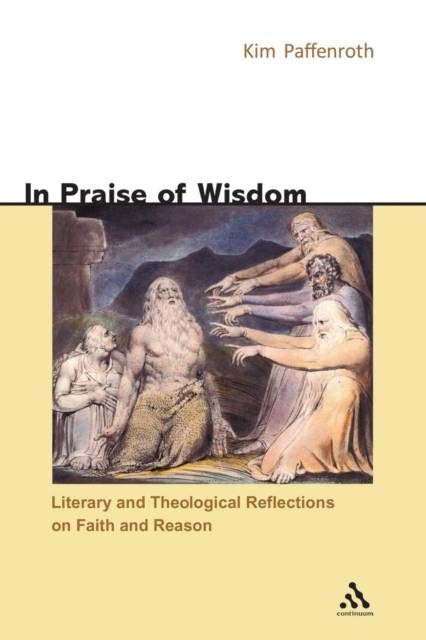
Bedankt voor het vertrouwen het afgelopen jaar! Om jou te bedanken bieden we GRATIS verzending (in België) aan op alles gedurende de hele maand januari.
- Afhalen na 1 uur in een winkel met voorraad
- In januari gratis thuislevering in België
- Ruim aanbod met 7 miljoen producten
Bedankt voor het vertrouwen het afgelopen jaar! Om jou te bedanken bieden we GRATIS verzending (in België) aan op alles gedurende de hele maand januari.
- Afhalen na 1 uur in een winkel met voorraad
- In januari gratis thuislevering in België
- Ruim aanbod met 7 miljoen producten
Zoeken
In Praise of Wisdom
Literary and Theological Reflections on Faith and Reason
Kim Paffenroth
Paperback | Engels
€ 67,95
+ 135 punten
Omschrijving
""You are taken to task more for your lack of wisdom than you are praised for your harmful mildness"" - King Lear
Kim Paffenroth's book examines several major aspects and developments of the Biblical concept of Wisdom. He focuses on Wisdom as it evolves through the works of Shakespeare, Goethe, Melville, and Dostoevsky.
The getting of Wisdom-the ultimate expression of joining of head and heart in search of God - is a key theme not only in biblical Wisdom literature but one of the major themes in Western literature. Lear, Ahab, Ishmael, Ivan Karamzov - all are in search of that meaningful combination of head and heart that brings a real knowledge of the world and of God tothem. Wisdom is therefore the basis of a relationship with God, and the foundation of human happiness, freedom, and fulfillment.
Paffenroth examines wisdom under four broad categories: the destructiveness of folly; the feminine side of Wisdom; the folly of Christ as Wisdom; and the problem of suffering, especially as it highlights the inadequacy of reason.
""This is a major contribution to the study of literature and theology."" -David Jasper, Professor of Literature and Theology, University of Glasgow.
Specificaties
Betrokkenen
- Auteur(s):
- Uitgeverij:
Inhoud
- Aantal bladzijden:
- 192
- Taal:
- Engels
Eigenschappen
- Productcode (EAN):
- 9780826418548
- Verschijningsdatum:
- 17/03/2006
- Uitvoering:
- Paperback
- Formaat:
- Trade paperback (VS)
- Afmetingen:
- 166 mm x 217 mm
- Gewicht:
- 263 g

Alleen bij Standaard Boekhandel
+ 135 punten op je klantenkaart van Standaard Boekhandel
Beoordelingen
We publiceren alleen reviews die voldoen aan de voorwaarden voor reviews. Bekijk onze voorwaarden voor reviews.









